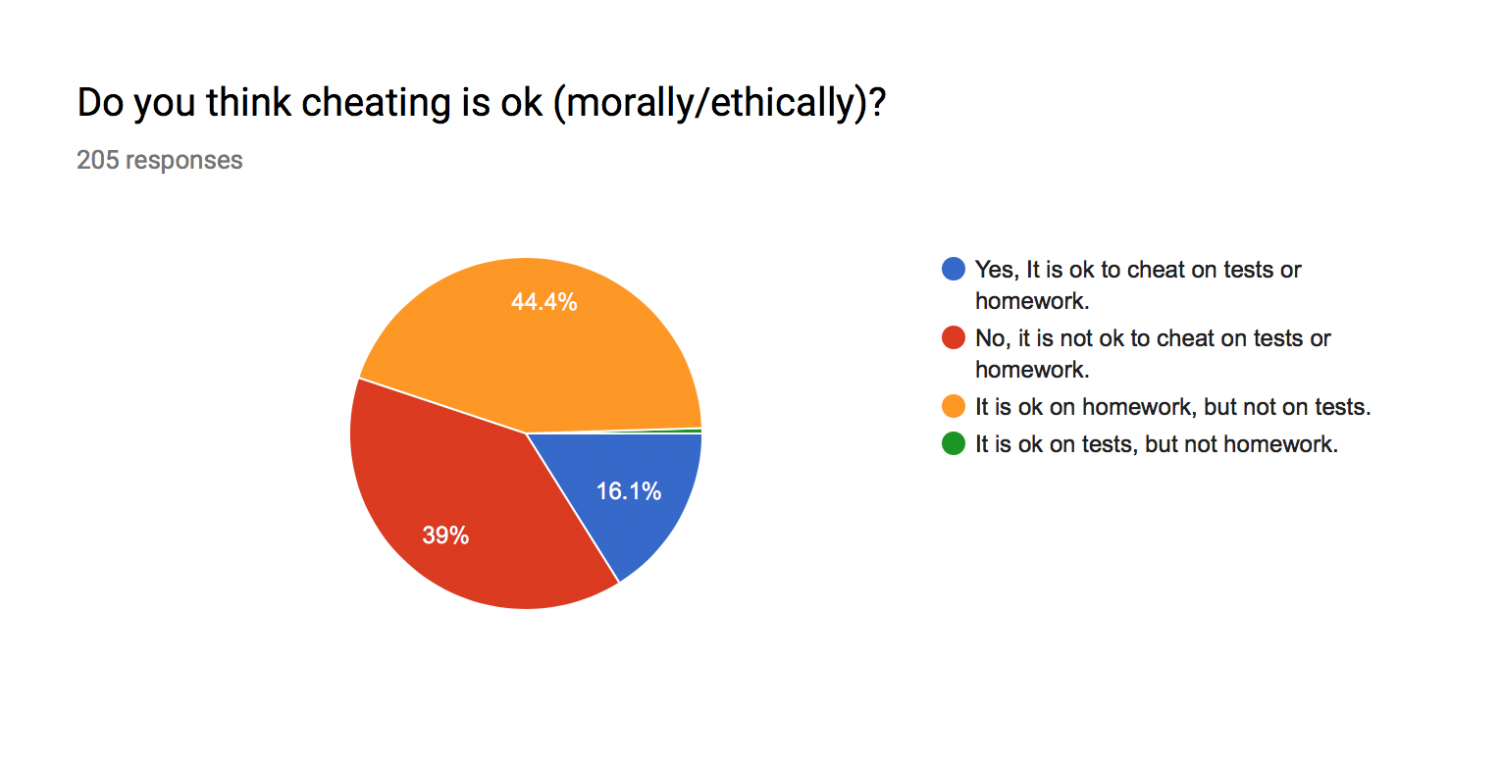One student slides their paper to another from across a row of seats. Almost instantly, all the students around him are sneaking a peak of the paper from over his shoulder. “Wait, is that answer B?” one asks. “What did you get on that one?” asks another. Soon enough, all the students have completed the worksheet with only one of them actually having read the article.
Cheating is a problem that seems inescapable. People send out answers at home on their phones, pass papers back and forth in class and simply glance over another’s shoulders in the middle of tests. What may be surprising to some is that LHS is not immune.
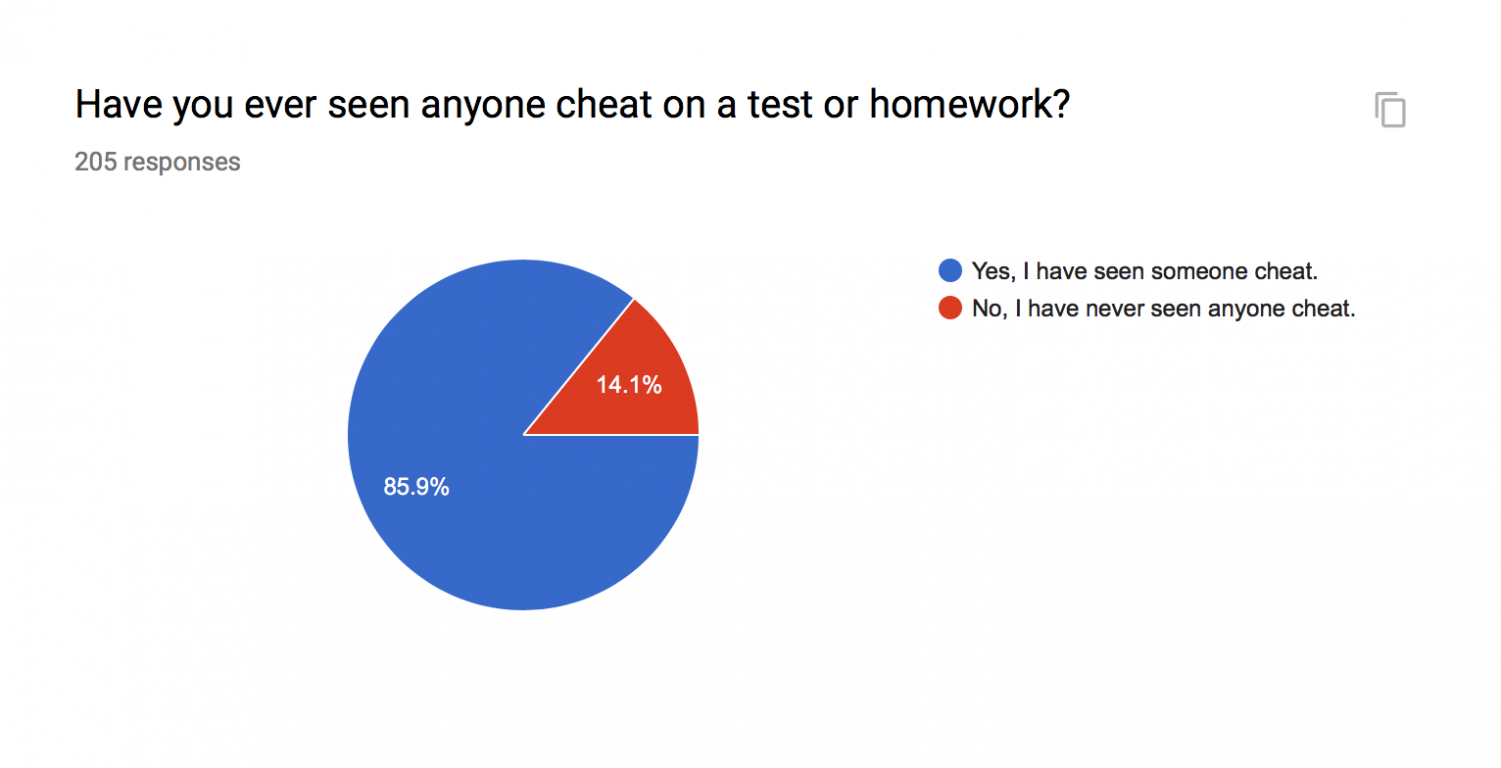
“I believe that cheating takes place at Lindale High School,” teacher Renee Ramsey said. “It is a sad commentary on values and character. As teachers, we try to stay informed, aware, and vigilant; however, it is impossible to catch all cheaters. At some point, a student must be accountable for his/her own character.”
When asked in an anonymous survey of 205 students, 65.7 percent of students admitted to having cheated in one way or another. Additionally, 85.9 percent of students reported to have seen someone cheat first hand. Most students report that cheating is occurring primarily with the use of phones, smart watches, sharing information, and manipulating the system.
“They cheat through sending pictures of homework in group chats, taking the test then telling people what material was on the test, literally having their phones or iPads open when they’re taking a test or having a friend grade it [who] puts an undeserving good grade on it,” an anonymous student said.
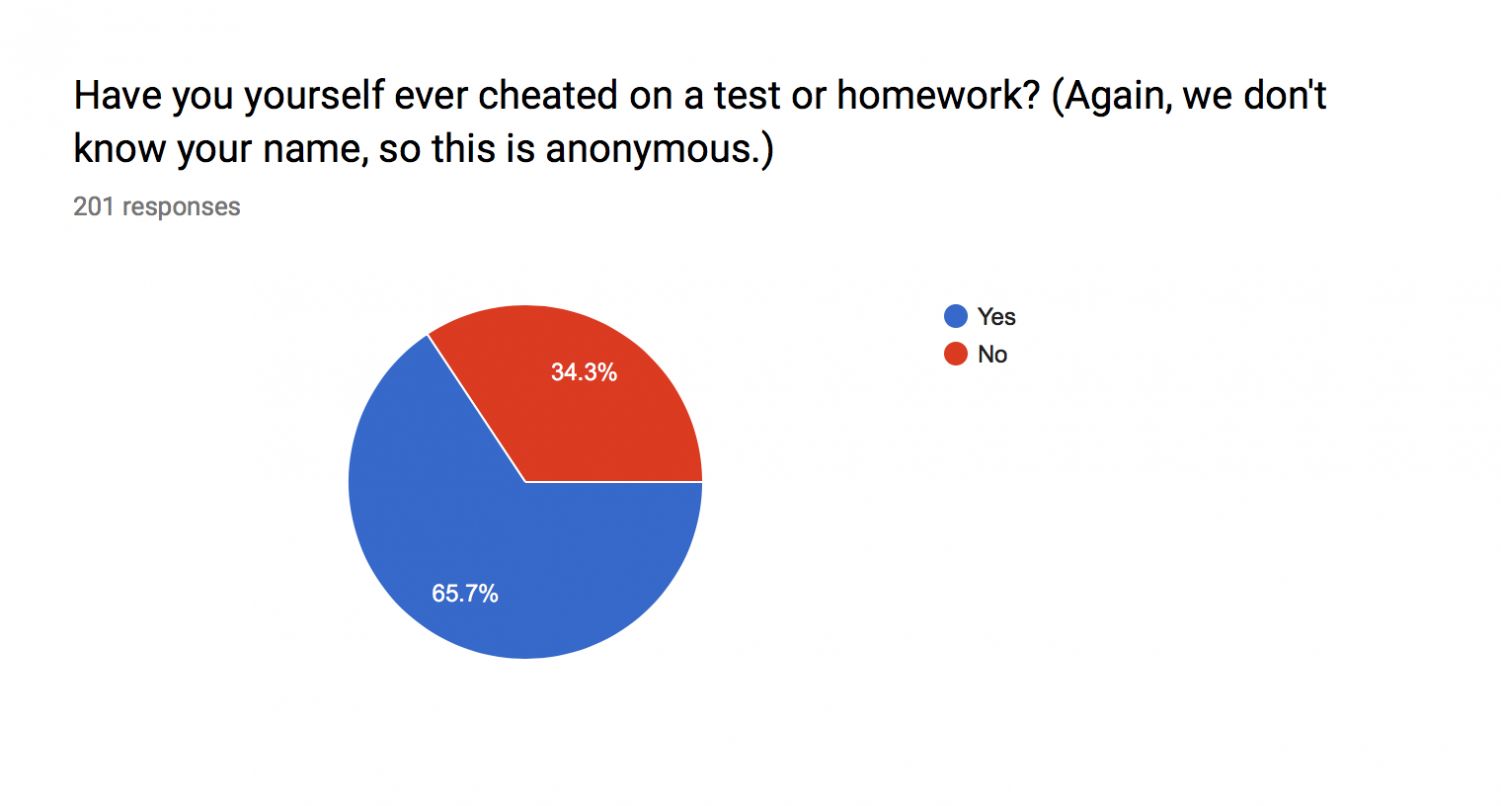 Cheating may also be happening because of the mindset students of the school have about it. When asked if cheating was okay, only 39 percent of students said that it was not okay to cheat on homework or tests. The majority, or 44.4 percent of students, said cheating was not okay on tests but is on homework, and 16.1 percent said cheating was okay in any case.
Cheating may also be happening because of the mindset students of the school have about it. When asked if cheating was okay, only 39 percent of students said that it was not okay to cheat on homework or tests. The majority, or 44.4 percent of students, said cheating was not okay on tests but is on homework, and 16.1 percent said cheating was okay in any case.
“I think the main reason people cheat on homework is because they don’t have enough time to do it after school,” another anonymous source said. “Many people are in extracurricular activities, have jobs or have to take care of younger siblings, leaving very little time to work on homework.”
Many students expressed that cheating occurs because it is the easy way out.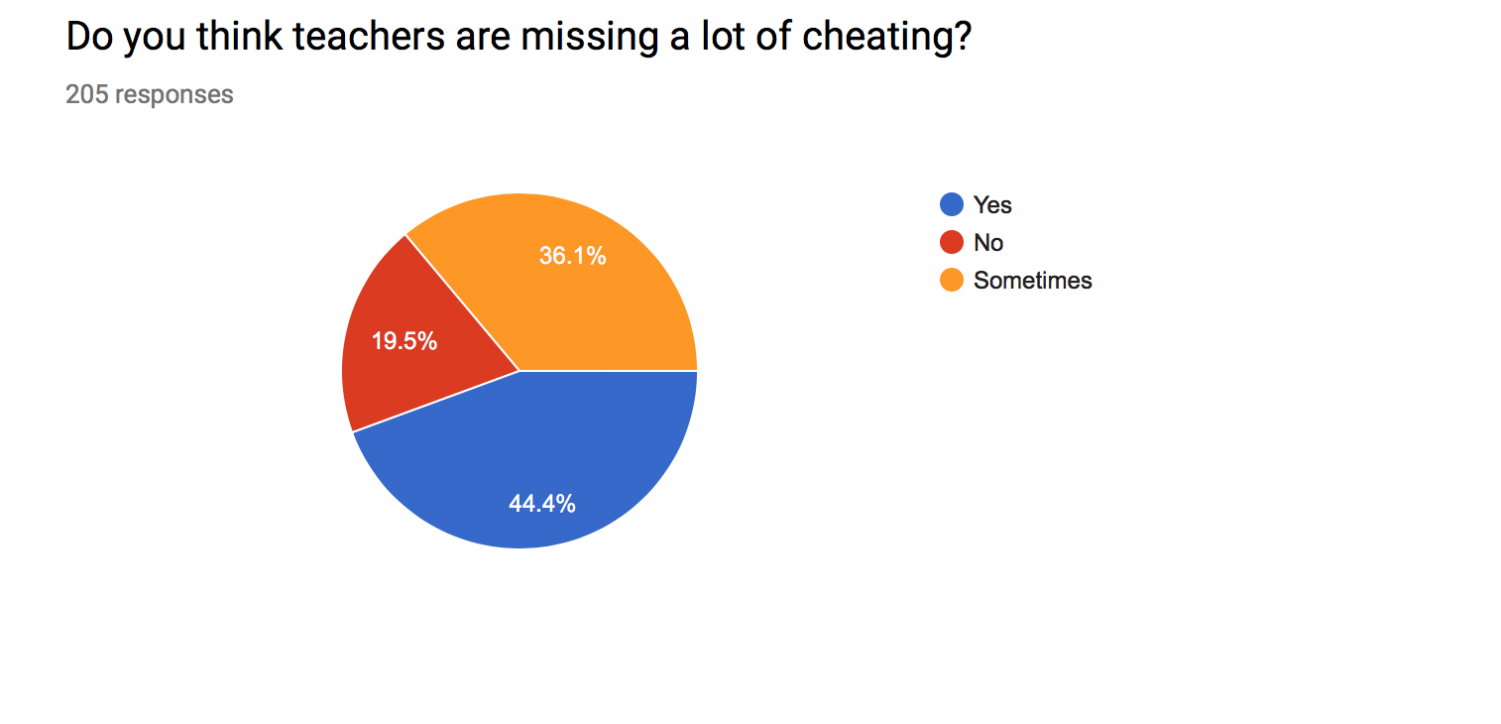
“I think the lack of attentiveness in class as well as not completely comprehending the material causes cheating,” an anonymous source said. “Laziness is especially a key component in cheating [as well].”
Though it may seem harmless, cheating has lasting effects. Repeated occurrences of copying “just one worksheet” or finding out “what’s on a test” add up. Students either don’t actually know the material and have to continue the cycle of cheating to keep up. Additionally, students can find themselves without the skills they need in college because of the gaps it can cause in learning.
“[I think some people are] too lazy to study themselves,” another anonymous source said. “They would rather make a good grade for the wrong reasons than make a bad grade.”
The majority of students realize that cheating is not ideal, and when asked if it is the reason some people make better grades than others, 64.2 percent said yes.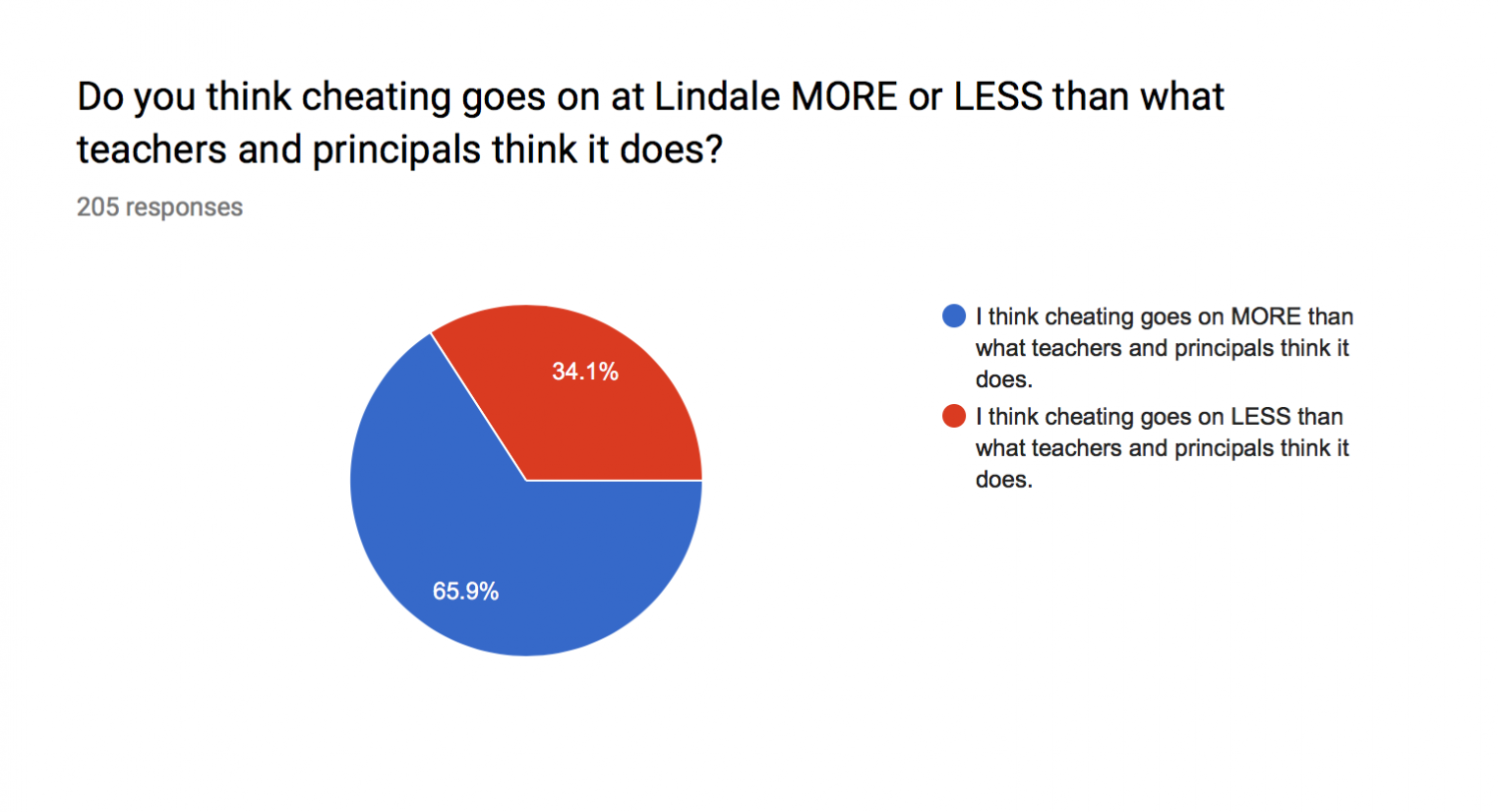
It is obvious that this is a problem, but how can it possibly be fixed? The majority of students claim that cheating can not be eliminated because students have become too skilled at the act. The majority also believe cheating is happening more than the teachers are catching it— 44.4 percent think teachers are missing a lot of cheating and 65.9 percent believe that more cheating is happening around the school than teachers or principals are aware of.
“People want to do better in school with less effort,” an anonymous student said. “Some students justify it to themselves by telling themselves they didn’t have enough time to do anything, when, in reality, a majority of their time is spent watching television, texting, and being on social media.”


